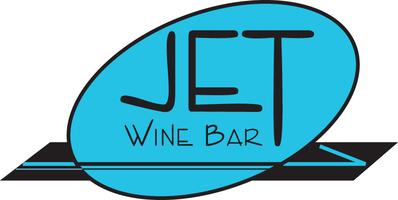Domaine Philippe Portier 2010 “Cuvee Victoires” Quincy
I believe this obscure wine region is worth a fresh look, especially after tasting this example. Located close to the famous Sancerre, Quincy produces classic Sauvignon Blanc. Aromas of tarragon, pear, …
NPR Interview featuring Keith Wallace
Katie Britton of WAMC/NPR interviews Keith Wallace. The interview revolves around Keith’s cookbook, Corked & Forked. It’s a awesome interview and quite long. It was originally supposed to be edited down …
Vinos Sin-Ley 2009 “Puerta Bonita” (G5), Vino de Madrid
One of the more confusingly named wines, the G5 is an awesome example of quality and value. An enveloping bottle of fruity goodness with a tooth-staining quality that will draw quite …
Jet Wine Bar
When I met Jill Weber, she was an archaeologist with a taste for wines from impossible places. Her palate followed her work: into the ancient vineyards of Syria and Turkey, through the ancient …
The European tradition of mulled wine started in ancient Greece.
My friends in Great Britain insist no holiday can be merry without mulled wine. But why should the Brits have all the fun?
The European tradition of mulling wine started in ancient Greece where heat and spices were used to salvage old wine once the summer’s harvest went bad. In the Middle Ages, mulled wine was credited with medicinal and aphrodisiac powers (what serf wouldn’t love to snuggle up with a hot toddy), and in Victorian England a spot of tea was added to a glass of mulled wine and dubbed “Christmas tea.”
In the United States, nearly everyone cites eggnog as our most typical holiday libation. Historically this creamy holiday tradition has beat out mulled wine due to the availability of milk and eggs from our plentiful farms, as well as the rum that’s been an affordable U.S. import from the Caribbean.
Direct sales invigorate wine-lovers
Local wine aficionados love to grouse, often with good reason, about how state regulations can sometimes stand between them and that coveted vintage.
But they are divided over whether a favorable decision in a case pending before the U.S. Supreme Court would do much to make more varieties available, or cheaper, in Pennsylvania and New Jersey. The court is being asked to decide whether states can limit direct, winery-to-wine-lover sales.
Keith Wallace, president of the Wine School in Philadelphia, had 53 phone messages the day after the Supreme Court heard arguments, and knows that oenophiles are watching the case.
Wallace spends $30,000 a year on wine. He said that recent innovations by the Liquor Control Board mean that “you have an enormous selection available.
“The problem is that the price point is often 10 to 30 percent higher than anywhere else,” he said.
The best-case scenario, he said, would be a Supreme Court decision that dealt a mortal blow to the state-store system.
But the odds are that Pennsylvania’s unique system, criticized for decades but politically resilient, will survive relatively unchanged.
Merryvale 2008 “Starmont” Cabernet Sauvignon, Napa Valley
A rock-solid Napa Cab at a rock-solid price. The nose of pencil shavings, vanilla, and toast promises great things to come, and it does deliver. The gritty tannic structure is balanced …
An NPR Interview featuring Keith Wallace on Wine Myths
Michelle Norris of All Things Considered interviews Keith Wallace about wine myths. The story originally aired on All Things Considered (NPR) on December 11, 2009. The article is reprinted solely for educational purposes. …
Sommeliers: A rare vintage
At the five-year-old Wine School of Philadelphia, located in Fairmount, 60 students are taking sommelier courses, even though director Keith Wallace decries the profession as “the worst position on the face of the earth. At most places, they’re glorified restaurant managers, talked down to and condescended to.”
Beverage managers, responsible for all libations served, make “marginal income,” between $30,000 and $40,000 after long hours, Wallace says, “at the very top, you can make $60,000 to $80,000,” but the hours are punishing. “The wine industry itself is an amazing place to work,” Wallace says. He directs students to industry positions, advertising for a large wine company, importing, running portfolios for distributors all offering the possibility of better pay, travel, nights and weekends off. (Contrary to assumptions, there are import and distribution jobs in Pennsylvania, but only one buyer.)
How a Class Can Enhance Your Wine Experience
The story was originally published by the Wall Street Journal on February 10, 2006. Learning the Ropes About Vines:How a Class Can Enhance Your Wine ExperienceBy DOROTHY J. GAITER and JOHN BRECHERAbout …
Vignerons de Caractere 2010 “Cuvee Prestige” Gigondas
Vignerons de Caractere is one of the top co-operatives in the Southern Rhone. They have been making a rather strong push into the US markets of late, especially in the Mid-Atlantic …
City Paper: Class Act
The story was originally published by the Philadelphia City Paper on April 10, 2007. The article is reprinted solely for educational purposes. It is intended to offer insight into the history of wine …










